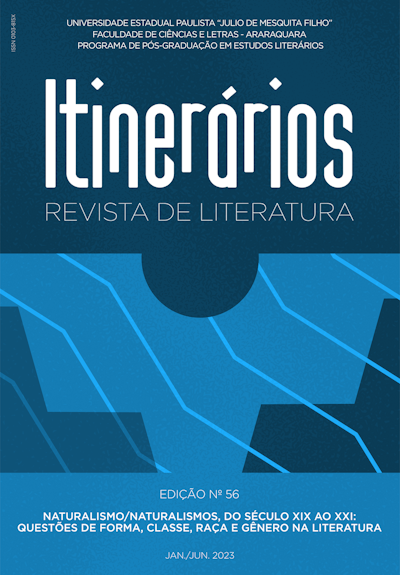“A crime on the moorland”, by the portuguese naturalist writer Júlio Lourenço Pinto
DOI:
https://doi.org/10.58943/irl.v1i56.18128Keywords:
Júlio Lourenço Pinto, Portuguese naturalism, Esboços do natural, “Um crime na charneca”, Portuguese naturalist short storyAbstract
Júlio Lourenço Pinto (1842-1907) is considered one of the main theorists of naturalist aesthetics in Portugal. From 1879, he seriously embarked on a literary career, launching the series “Cenas da vida contemporânea”, a small collection of five novels published at irregular intervals over the next ten years: Margarida (1879); Vida atribulada (1880); O senhor deputado (1882); O homem indispensável (1883) and O bastardo (1889). While working on “Cenas”, he devoted himself to writing a sequence of articles theorizing naturalism, published in “Revista Estudos Livres” in 1882, a periodical directed by Teixeira Bastos and Teófilo Braga. The articles were expanded and gathered in the volume Estética Naturalista, from 1884. In addition to the novels, Júlio Lourenço Pinto wrote some short stories, published in the volume Esboços do Natural, from 1883, republished in 2006, by Imprensa Nacional-Casa da Moeda. “Um crime na charneca”, corpus chosen for analysis, is one of the five texts present in the work. The purpose of the article is to discuss the writer, casting new eyes on the theory produced by him, demonstrating that in “Um crime na charneca” the author explored other naturalistic aspects considered minor by later criticism.
Downloads
Published
Issue
Section
License
Os manuscritos aceitos e publicados são de propriedade da revista Itinerários. É vedada a submissão integral ou parcial do manuscrito a qualquer outro periódico. A responsabilidade do conteúdo dos artigos é exclusiva dos autores. É vedada a tradução para outro idioma sem a autorização escrita do Editor ouvida a Comissão Editorial.

